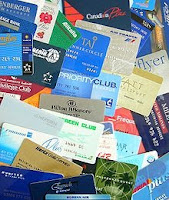Hotel owners and operators fought it out at the recent
Asia-Pacific Hotel Investment forum in Bangkok during a panel discussion titled
“Hotel owners bear all the risks and operators reap all the rewards”. True to
its racy title, the panel drew lots of sharp breaths from the audience as two
owners were pitted against two operators. The instant survey conducted
immediately afterwards showed the audience was siding with the owners’ argument,
albeit by a smaller margin (61% vs 39%) than expected.
 Complaints about hidden management fees aside, the owners’
side quickly honed in on OTAs and loyalty programs as the culprits responsible
for eroding their investment returns. It’s not surprising that owners don’t
like either, but particularly the attack on OTAs sounded a bit like sour
grapes. There can be no denying that the traditional hotel industry simply
missed the boat and is now having a hard time getting in on the OTA action, if
that is possible at all given that even Google has recently become an OTA.
Complaints about hidden management fees aside, the owners’
side quickly honed in on OTAs and loyalty programs as the culprits responsible
for eroding their investment returns. It’s not surprising that owners don’t
like either, but particularly the attack on OTAs sounded a bit like sour
grapes. There can be no denying that the traditional hotel industry simply
missed the boat and is now having a hard time getting in on the OTA action, if
that is possible at all given that even Google has recently become an OTA.
The attempt by the big brands to counter the OTAs by
launching their own – Roomkey.com – seems to have failed so far – there’s a
great article on RoomKey.com’s misguided strategy by Vikram Singh here.
So how to counter OTAs? The response of the operator side
was simple: build a brand. One of the panelists claimed that 75% of bookings at
his hotel are made directly through their sales channels, rather than OTAs. His
message to the owners: if you want to maximise revenues from the hotel brand
occupying your property, choose an operator that is willing to build a brand
that entices and thereby compels travelers to book directly through them.
I couldn’t agree more. OTAs have added another level of
competitiveness to the travel sector and are fast commoditising hotel rooms. Recent
research by comScore showed that online travel spending surpassed $100
billion for the first time in 2012, a 9% increase over the previous year, with
OTAs such as Orbitz, Expedia, and Travelocity claiming a sizeable chunk of
these revenues. Currently the OTAs dominate the market when non-branded keyword
phrases are searched. For example, searching for “Hong Kong Hotels” on Google –
which is what the average traveler without brand preference would do - churns
out a list heavily dominated by OTAs.
While the OTA challenge seems formidable, hotels can certainly
claim back some of these revenues through online strategies and paid search ads.
A hotel I booked recently through Agoda offered me a promotional code at
check-in that will give me 10% off my next stay if I book directly through
their website. While these strategies may work, I would argue that a more
effective solution would be to build a strong brand.
On Loyalty Programs
The other beef that owners had during the panel discussion was
loyalty programs. Unanimously they condemned loyalty programs as “free night
programs”. The argument was that if a hotel offered a unique and memorable
guest experience – if they ‘got it right’ – then they did not have to offer
loyalty programs in the first place as guests would flock back to them without
any incentives.
I think this is somewhat oversimplifying the loyalty concept,
specifically if owners don’t believe in building a strong brand – how can you
foster loyalty without it?
 |
| Courtesy Market Metrix, http://corp.marketmetrix.com/ |
For one, the ‘free night program’ argument no longer holds. A
study by Deloitte found that travelers place more importance on factors
such as value for money and past experience, rather than free room nights. This is echoed by many other surveys, including the one by Market Metrix on the right.
In other words, just like with airline programs, it’s the
perks that count. The value of fast luggage delivery, waitlist preferences and
increased upgrade potential to the airline high flier, is the equivalent of room
upgrades, executive lounge access, internet access and late checkout to the
hotel loyalty card holder.
And let’s not forget the other factor here: loyalty programs
tickle the human ego by delivering something that hotels ‘getting it right’ cannot:
status and the opportunity to feel valued and more important than the non
member customer next to you that didn’t get an upgrade.
Unless you are a ‘one of kind’ hotel such as the Raffles in
Singapore, loyalty programs in hotels across the world are ways to lock in
frequent travelers by delivering a ‘rewarding’ experience which will help build
a strong brand.